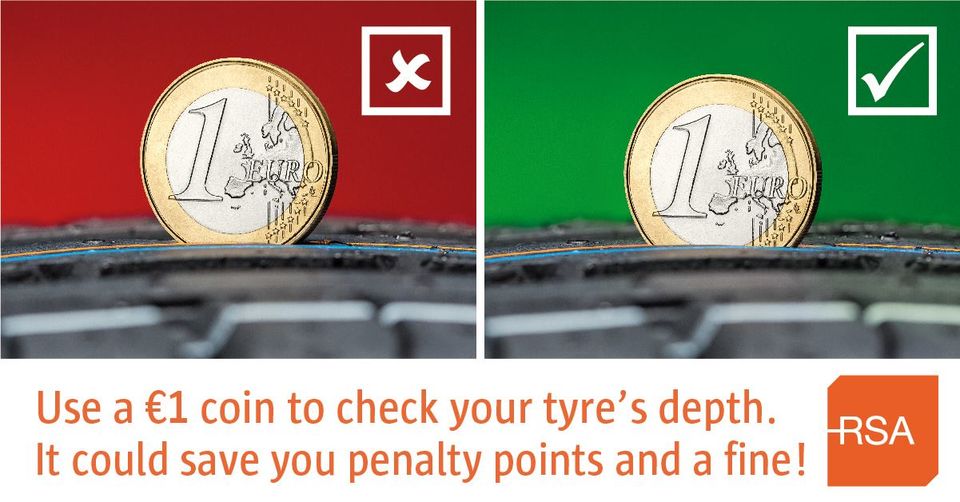7 mins read
Vehicle downtime is never a good thing for any business, but many instances of downtime can be avoided with a little initiative and knowledge. While a vehicle walk-around is no replacement for regular maintenance from an approved repairer, it can certainly help to mitigate against unplanned downtime that could cause disruption to deliveries, meetings and/or other business-critical activity.
With that in mind, here are a few basics to help keep your vehicle(s) healthy in between servicing.
1. Tyres
Your tyres are the most important safety feature on your vehicle, but they are often the most overlooked by drivers. A good tyre will stop a vehicle in the shortest distance possible, reduce cabin noise, and improve driver comfort and overall drivability. When it comes to tyre performance, there are 3 major factors that will have an impact; Quality, Age and Wear.
- Quality: NiftiBusiness always opt for trusted trye brands recommended by our partners in Continental and Bridgestone, so this is an area that you can have total confidence in from us.
- Age: It is recommended that tyres are changed at least every 6 years, if not sooner. However, we have found that most of our customers change their tyres at least once a year, or every 30,000km.
- Wear: This is something easily checked by a driver. The minimum legal tread depth for a tyre in Ireland is 1.6mm, but we would never recommend leaving a tyre to wear this low. Our advice is to inspect your tyre tread depth once per month, and if your tyre does not meet the below threshold check, go straight to one of our trusted partners for a tyre change.

2. Lights
The dark winter months may be behind us, but it is no less important to ensure, on a monthly basis, that your vehicle’s lights are working. This will help reduce the risk of being caught out on a dark, rural road, or being pulled over for missing a headlight.
Inspecting your lights is easy and should only take you a few seconds. Simply turn on your dip beams and hazard lights with your ignition in ACC (electrics on, engine off), with the car in reverse. Then take a quick walk around the vehicle and note any lights that aren’t showing. You can also ask a friend to inspect your brakes lights while you’re in the car.
If in doubt, our Driver Support team can direct you to your closest ‘drop in’ supplier who will be happy to do a light check and replace any bulbs needed while you wait.
3. Wipers and Washer Fluid
Your wipers are one of the most important safety features on your car. Just imagine, how would you drive safely with a dirty windscreen, or in a rainstorm without them?
Luckily, maintaining the wipers and even changing them is not a huge amount of hassle, and here is what we recommend;
- If your wipers are leaving streaks, your first step is to grab a clean cloth and some water, and give the wiper blades a quick wipe. One direction, end to end and then give them another try. Better? Great!
- If Cleaning the wipers hasn’t worked, they may have reached their capacity to clear and be frayed or ripped. If this is the case, our Driver Support team will guide you to a ‘drop in’ supplier to have them changed while you wait.
- Is there fluid in your washer bottle? If not, NEVER use washing-up liquid in place of washer fluid. This can block the washer motor which may need to be replaced, at your expense. Only approved washer fluid should be used in a washer bottle, and if none is available, plain water is better than nothing. If you aren’t confident in filling up, our Driver Support team will guide you to a ‘drop in’ supplier.
4. Glass
A quick inspection of your glass can save you a lot of worry, and expense, further down the line. We recommend inspecting your windscreen and wing mirror glass once per month to ensure that you have not picked up any chips on your journeys.
If you notice any chips or cracks, report them to our Accident Management team and they will arrange for a repair as quickly as possible. Small chips have a tendency to turn into large cracks if not looked after, so it is best not to delay in addressing the issue.
5. Fluids
Engine oil, coolant, brake fluid, ad blue… there is a lot to think about when it comes to vehicle fluids, but thankfully our team members are on hand for you, and they are experts.
While most fluids won’t need your attention between servicing, it is no harm having them checked in one of our ‘drop in’ suppliers every 6 months, or between each service appointment.
We are here for you
While we recommend following the above steps to get to know your vehicle a bit better and see how it is generally doing, we will always be here for you, and we are ready to help. If you have any questions or concerns, please call our Driver Support team today.
